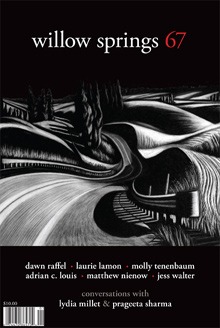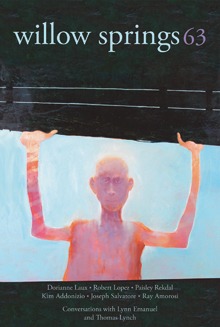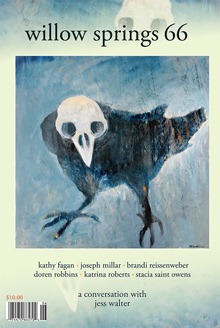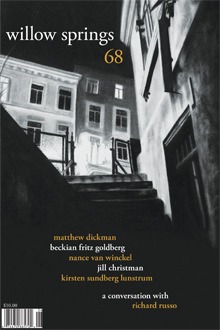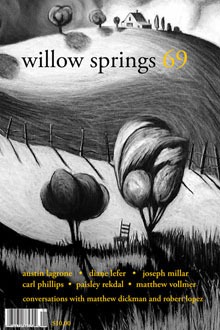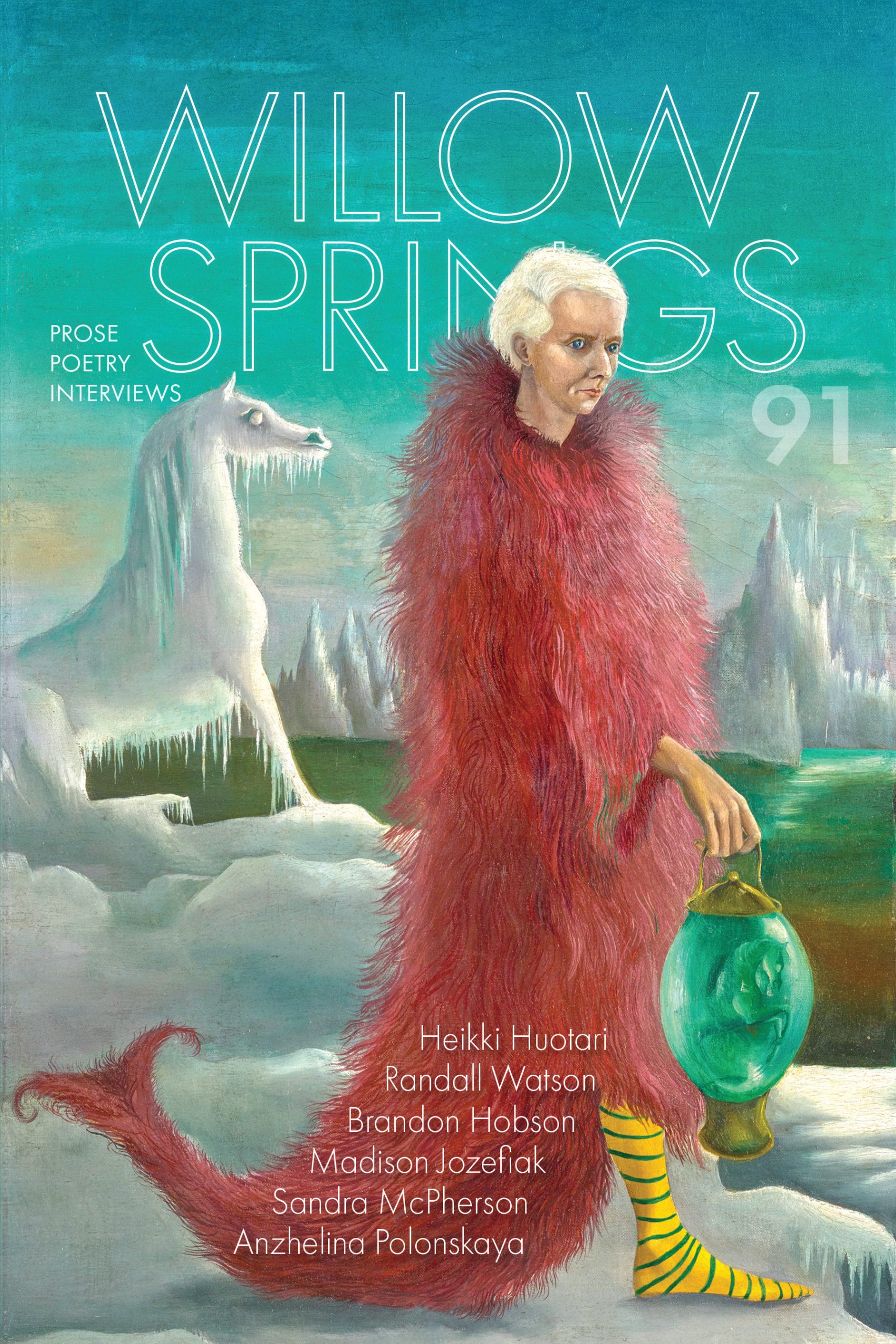THROUGHOUT HIS WORK, Brandon Hobson presents stories of Native lives shaped by intergenerational trauma and atrocity and also by cultural continuity and hope. As his characters navigate familial separations and systemic racism, they find themselves in circumstances both relatable and astonishingly surreal. They discover and recover identity; they hurt, heal, fall in love, leave, and find home in a fractured contemporary society. In her review of The Removed for NPR, critic Marcela Davison Avilés writes, “The story in this book is deeply resonant and profound, and not only because of its exquisite lyricism. It’s also a hard and visceral entrance into our own reckoning as a society and civic culture with losses we created, injustices we allowed, and family separations we ignored. It’s a path of renewed mourning, meditation and trauma which at once seeks the vitality of what once was, and justice for what was taken.”
Brandon Hobson is a 2022 Guggenheim Fellow and the author of The Levitationist (2006); Deep Ellum (2014); Desolation of Avenues Untold (2015); Where the Dead Sit Talking (2018), a finalist for the National Book Award; The Removed (2021); and The Storyteller, Hobson’s first middle grade book, which will be published in April, 2023. His short stories have won a Pushcart Prize and have appeared in Best American Short Stories (2021) and McSweeney’s among other publications. Hobson served as a judge for the 2021 PEN America Literary Awards. He teaches creative writing at New Mexico State University and the Institute of American Indian Arts. He is the Editor-in-Chief of Puerto del Sol. Hobson is an enrolled member of the Cherokee Nation Tribe of Oklahoma.
We spoke to Brandon Hobson over Zoom in early June of 2022, a couple of months after hearing him speak and teach a craft class as a featured author at the Get Lit! festival in Spokane. We discussed the symbiotic relationship between music and imagery, representation, and ways to approach multiple perspectives and world-building in novel writing. We began by discussing intention.
MORGAN HENDERSON
Do you start your pieces with clear intentions, and do those remain the focus throughout? Or do you find meaning as you go?
BRANDON HOBSON
I usually start with an image, and then I build from there and see what happens. Sometimes I have an image that I think is something to end with, and I might work toward that image. I might think of a sentence, like an opening sentence, but it’s usually an image. Part of the process early on in writing is trying to figure out what the story is about because I think it’s about something when in reality it’s about something entirely different.
JOSHUA HENDERSON
Can I ask what image you had in mind when you were beginning to write The Removed or Where the Dead Sit Talking?
HOBSON
Sure. With Where the Dead Sit Talking I had an image of a man at a grave site in shackles. That image was in an early draft at the beginning of the novel. With The Removed, a lot of the images came from thinking about the Darkening Land, which is a mythological space used in traditional Cherokee stories, and making that Darkening Land my own—a great old downtown space with these crooked and falling-apart buildings and people walking around sort of bug-eyed and very gray. For me, at least with Edgar’s sections, what was exciting about The Removed was being removed out of this world and into the mythological space of the Darkening Land.
JENNIFER KRASNER
In an interview with David Heska Wanbli Weiden, you mentioned Kathy Acker as an influence for the Darkening Land. It was such a suffocating dystopia in that basement. She has some scenes like that, too. I’m curious to hear how you took that traditional origin, a literary influence, and your own vision and pulled those all together.
HOBSON
I don’t know that I was thinking so much about her when I was writing those scenes in the Darkening Land or writing the book necessarily, but that influence might be there somewhere because she was such an early inspiration for me. Kathy Acker is a writer from whom I learned to be bold and unafraid in my writing. She was one of the first writers where I was just knocked out and thought, “Wow, you can do this?” She does a lot of stuff with language. I think she was absolutely brilliant. My interest in surrealism grew out of reading Kathy Acker and William Burroughs, who I know was a friend of hers and an influence on her. That drew me into writing early on. Exploring that surreal space felt very exciting. I asked myself, “How can I incorporate this surreal element into a modern story?” Thanks for reminding me about her. She was amazing. She still is. I think she’s very underappreciated. Many students have not heard of her, so it’s always fun to introduce her. I know you’ve interviewed William T. Vollmann. I think they were kind of compadres back in the early 90s and were big writers at the time. I was reading both of them, and they influenced the way I’ve been writing fiction.
J. HENDERSON
In the Joy Williams essay “Why I Write,” she describes writers as sharks that move “hidden in our midst, beneath the din and wreck of the moment.” I saw this as describing a writer’s relationship to truth. In Deep Ellum and Where the Dead Sit Talking, it feels like these sharks—the emotional core or truth of the story—are obscured, like the characters either aren’t fully aware of the sharks or there’s something so difficult for these characters to talk about that they can’t quite access it. In Where the Dead Sit Talking, Sequoyah imagines scenarios of tying Rosemary down. These imagined acts of violence feel like they’re expressing something that he can’t otherwise express. In The Removed, the shark—this truth that I think Williams is talking about—feels more like it’s coming closer to the surface. As much as Edgar gets trapped in the Darkening Land, he does escape. The red fowl is killed. What is a writer’s relationship to truth in a story and how does a writer choose to obscure or reveal that truth?
HOBSON
Those are the big questions, very difficult to answer. I discover along the way. That’s done through revision. I don’t know how much I revised those sections, especially those sections of the Darkening Land. I was working with my agent at the time, revising it, and then revising with my editor, and that was after having revised it several times already on my own. What’s the truth I’m looking for, for this character on this journey? What is the question? What’s the image? What am I trying specifically to say? And how am I going to go about doing that in the most effective way or the most artful way possible? The red fowl was actually a later addition in revision. In fact, it may have been the last revision. Then, I went back and added the red fowl throughout the whole book. And I started thinking more about metaphor. I started thinking about colors. When Edgar escapes the Darkening Land, this dark gray world, I wanted it to be a colorful experience, which is why I mentioned cherry blossoms and the colors of other important Cherokee lore—golds, greens, and reds. These three combined colors are on the cover of the book as well. I focused on colors representative of justice, representative of returning from removal, representative of healing. So I began in revisions to start thinking about: How can I use color? How can I use symbol or metaphor to help show what I’m trying to approach—returning from removal—and do it in a unique way, in the most artful way I can? With the Darkening Land, what is Edgar’s truth? And how does that mirror the truth I’m trying to reach—the truth of the entire novel, which is exploring the answers to questions: What does it mean to heal? What does it mean to deal with trauma? What does it mean to deal with generational trauma? Abuse? All these are issues I love to write about. How do we approach them and look for ways out?
J. HENDERSON
It's interesting that the red fowl is one of the later revisions because that really guided me through the Edgar sections. It felt like it was always there, but I guess that speaks exactly to what you’re talking about with finding the meaning through revision.
SAMANTHA SWAIN
I wanted to ask about crafting those ambiguous endings in As the Dead Sit Talking and The Removed. In As the Dead Sit Talking, we’re left with Sequoyah’s question about whether he contributed to Rosemary’s suicide. In particular, he said something like, “no one suspected murder.” We had some argument about whether he felt like his attempt to stop her contributed to her pulling the trigger or whether he had intentionally helped her pull the trigger. Likewise, in The Removed, I interpreted the Darkening Land as an overdose and thus the ending where Edgar walks down the blossom path as him crossing over. Yet, simultaneously, I thought, “Well maybe he really did live and arrive at the bonfire.” Both of these endings feel really satisfying. I wondered if you could talk about how you conceptualize and approach open endings.
HOBSON
I’m interested in blurring the line between reality and fantasy. I’m also very interested in unreliable narrators and their effect on the reader and how seductive an unreliable narrator can be. With Where the Dead Sit Talking I was getting into the space of a fifteen-year-old boy—well, technically, it’s a man looking back and trying to retell his story. When we’re writing fiction, we’re telling lies, right? We’re making things up. Even if it really happened, how can we alter this a little bit to make it a better story because it’s not a great story right now, so we have to embellish or exaggerate, and we have to do that in a very seductive way. Our job as writers is to seduce the reader. That sounds creepy, but when I’m a reader, so often I’m seduced by the voice, by the narrator, especially when we’re talking about first person, these two works specifically being first person. When I read first person, I’m so easily seduced that I’m willing to follow this voice wherever it takes me. I’ve come across the narrators who, at some point, I’m asking, “Wait a minute, what’s really going on here?” That lends credibility to the story, to the voice of the story, no matter if it’s an adult or if it’s a child. Take To Kill a Mockingbird for example. When I taught seventh grade years ago, I taught that book. I remember talking about how effective Scout’s voice is. Is she telling me everything? Is she leaving something out? How reliable is she to tell me these things? These very dark thoughts that Sequoyah is getting when he’s looking back, why is he choosing to give these to us? Why is Edgar or why is Sonja telling us these details, and what are they leaving out? Those are the choices we make with first-person narratives that, to me, become very exciting.
SWAIN
I see, the ambiguity of the ending stems from unreliability. That’s really interesting.
HOBSON
I’m much more interested in how something is done than I am in a satisfying, happy ending. The Removed was chosen early on as a Book of the Month Club selection, which was great in that it sold a whole lot of copies, but I just wonder whether my work is too weird for many people. And that’s okay. It’s not going to be for everybody. I never want to write something that I think will have a feel-good ending. Not everybody loves Kathy Acker. Not everybody loves David Lynch.
J. HENDERSON
I’ll sometimes go in to Goodreads and see what people have to say about a favorite book, and they’ll be brutal. It’s like getting tossed to the dogs.
HOBSON
Well, that’s part of it. You have to deal with that kind of stuff and overlook it. I don’t have a profile there and don't go there, nor do I look at Amazon reviews. People love to have an opinion about things. I was looking at hotel reviews—we’re going next week to New York—and it’s the same thing, right? They absolutely trash hotels.
SWAIN
In a past interview you talked about feeling like you were not Native enough to write novels like Where The Dead Sit Talking and The Removed. I have often struggled with thoughts of like, “Well, I’m not disabled enough to tell this story.” Could you talk a bit about how you overcame this sort of thinking? What advice would you give to young authors dealing with similar feelings?
HOBSON
I still struggle with those feelings. At some point, it’s about stepping out and being entirely honest with yourself and being the type of writer you want to be. It helped to think of myself as the audience. You’re putting aside what other people are going to think and just saying, “Fuck it. I’m going to write this book for me. This is the kind of book that I want to write. And these are the characters who are dealing with these issues that I want to write about.” It’s also important to lean on the support system of whatever group you’re in. I talk with my friends who are Native about this issue a lot, and it’s really surprising to hear how many have felt the same way. “Am I really Native enough to have this conversation?” It helps to know that everybody feels this way, whether you’re writing about gender identity, disability, or anything else. What also helps is thinking that this is just one story or one book. I’m going to write more. This is something I love to do, that I’ve been doing since I was young, and I’m going to continue to do it. It’s not going to be the end of the world if this one story or book doesn’t work out. Speaking of, Sam, a colleague of mine, Connie Voisine, just got a grant for writers with disabilities here at New Mexico State University. [https://www.zoeglossia.org]
M. HENDERSON
How do you manage what you demand of the reader versus what you give them?
HOBSON
I don’t know that I think too much about the reader, especially when I’m drafting. And again, I’m really writing this for myself, and I’m writing the kind of book that I would like to read.
M. HENDERSON
How do you know when you’re going to construct something that needs to be interpreted versus something you’re going to straight up tell the reader? Is it just intuitive?
HOBSON
A lot of that comes out in revision. When I’m first drafting, which is the most fun, I’m not thinking so much about the demands on the reader. Let’s say I’ve written a scene where someone is hurt by someone who’s just left. I might have them say it, but then, going back, I say to myself, “Well of course, it’s so obvious. I’m showing this person going through this struggle, why would I have them speak it out loud?” So I’m going to cut that. I start thinking about the demands of the reader. Am I being too ambiguous? Am I not looking at my sentence structure? Is this sentence that goes on for a page and a half too demanding? Do I really need this? Is this doing what’s it’s meant to be doing? Should I shorten this? All that is done later on. I actually really lean on my agent and my editor to help me.
SWAIN
That’s something I really appreciate about your work, its accessibility. It’s still nuanced and complex, especially your characters. In past interviews, you had talked about letting the characters speak for themselves and speak through you. I was curious what your character-building process looks like. When you’re first starting a novel, how do you get to know them?
HOBSON
These last two books have first-person narrators, so I have an idea before I start what they look like and what their voices sound like. I don’t know them fully when I begin writing about them, although by the end of the first draft I know them pretty well. Sonja in The Removed, I love her character. I’ve heard people say, “Wow, she’s really disturbing and dark and unlikable,” but I don’t see her that way at all. When I was writing her sections, she was very confident, maybe a little bit eccentric, riding her bicycle to the library and sitting outside on the steps, but I certainly didn’t mean her to be dangerous in any way. If anything, she’s a victim. She becomes a victim of the assault of the police officer’s son. I have her being very confident, very sexual, open about the relationships with younger men. The more I wrote about her, the more I felt that confidence, and that eccentric woman came out. At the beginning, I wanted to have her very fixated on Vin. The more I write, the more I discover about these characters.
KRASNER
It makes me think of something you said in your craft class at Get Lit! in Spokane, “Writing is kind of like acting.”
HOBSON
Oh, thanks. I don’t want to take credit for that. I heard that from Ottessa Moshfegh. I’m a big fan of her work, and seven or eight years ago in Wichita, Kansas, I had dinner after her reading with her and an owner of a bookstore. She was fantastic. That was one of the things she had talked about, how much working through your characters feels like acting. And I thought, “That’s right!” Especially in first-person, though you can do it with a close third, too. You decide how you want them to perform on the page instead of on the stage, right? Even though I find myself too cripplingly shy to be an actor, I can understand it as a writer.
M. HENDERSON
Ottessa Moshfegh is my favorite!
HOBSON
She’s one of my favorite writers working today. And, at her age—I would say young, forty-one or forty-two—her body of work is just amazing. My favorite story in her collection is the last one [“A Better Place”] where the brother and sister go to kill the “bad man.” It has a fairy tale quality. Her new novel coming out this summer, Lapvona, is in a fairy tale style. I haven’t read it yet, but I have the galley here, and I’m excited to read it.
J. HENDERSON
In writing workshops as MFA students, we hear all the time about this dichotomy of active and passive characters. It’s not a strict rule, but we’re often told to avoid passive characters who avoid conflict. But in your work there are characters we might not traditionally think of as being active. Like Sequoyah—a lot of the time he’s just listening to people, observing, sitting back. There’s that teacher who corners him in the bathroom talking about how he misses his house and his ex-wife. Even if he’s just listening, he’s doing so in a way that feels active. He’s drawing these stories out of people. I’m interested in hearing your thoughts on what makes an active or passive character. Is that something that matters to you at all? Can a character become active just through the telling of their story, even if they’re just sitting back and not literally doing something?
HOBSON
Thanks for that question and that scene. I don’t know that I think about active versus passive so much as I think about what’s
bizarre about human behavior. I have these conversations with my wife where we’ll say, “Did you notice that guy and what he was doing? What the hell was that?” We’ll laugh about it. I feel like those happen to me all the time. I don’t know that I think as much about active and passive as I do about situations. A large part of Where the Dead Sit Talking takes place at this new school, and when I think about schools, I always think about how strange my experience was, the strange things that teachers would say or do. I’m really dating myself, but going way back, pre-internet, using overhead projectors, and that light flashing—one of the scenes in that book was the weirdness of sitting in a dark room, drowsy, and listening to a teacher drone on and this weird light flashing in his face and finding myself way more interested in looking out the window. I always had this feeling I’d give anything to be able to walk outside and be by those trees, but no, I’m confined in this horrible space listening to this strange guy. I think those situations in the classroom or in P. E. are universal. Maybe I picture the characters as passive because I’m very passive, or just more observational. There’s a scene in Where the Dead Sit Talking where Sequoyah goes in the bathroom and sees a stick figure holding a gun, and I was thinking about all the drawings that I used to see and all the terrible, disturbing things that people wrote as graffiti—hateful, rude, disgusting drawings. Someone drawing a gun. I mean, especially right now. Is that a sign that there is something we need to be looking out for? I wanted to incorporate some of that in the book. I constantly, and I mean constantly, almost daily, when I go to the grocery store, find myself overhearing or seeing things that seem very strange. I’m fascinated by it as a writer because what a great opportunity this is, listening to this couple, this elderly couple, argue about what they’re arguing about. I’m very interested in making the normal feel absurd.
J. HENDERSON
I was thinking about the video game in the Darkening Land that Jackson Andrews is developing, how that feels so absurd but also real, and how the absurdity heightens the way it feels real, something dark and true about America. The video game was fascinating both in the way your approach to handling politics has evolved throughout your work and the way there’s a mixing of humor with a subject that is not funny. It’s really compelling. Also, there’s a manual for the game. How do you go about putting a manual in a novel?
HOBSON
I don’t think it’s really that absurd. Video games with shooting have been around for a long time, and recently there are video games where people have assault rifles and are killing people left and right. Now we’re seeing it play out in real life, not necessarily because it’s the video game’s fault. Edgar is going, “My brother was shot by a police officer. Now I’m in this space where I’m the target because I’m Native.” That’s part of the game, shoot the Indian. I pushed it into absurdity where in the basement Jackson has created this whole sort of replica and Edgar sees his brother. That’s absurd, but on some level, I don’t feel like it’s that much more absurd than what’s happening right now. My eight-year-old son is playing the Oculus. That feels more absurd. Part of my job as a fiction writer is to try to exaggerate those things. Ray Bradbury was onto virtual reality back in the sixties when he was writing The Illustrated Man.
For the manual, I used one of my son’s video game manuals as a model. I actually had a much longer manual and my editor was like, “Do we really need this many pages?” and I thought, “I kind of like all these pages in here, but I see your point. Let’s just stick to the objective of the game and the specifics.” She had a very good point and I think it’s ultimately better shorter, but it was fun to create that manual. I like to experiment, and I like it if a novel or a story has something in it like a manual or something seen as non-traditional that lends itself to the story. Do we really need this script in here? Well, yeah, of course we do. It’s showing something about the character we’re not seeing in a different way. One of the fun things of being a fiction writer is that we can incorporate little plays or drawings or whatever, manuals, and use them in our work.
SWAIN
I feel like that’s part of world-building. It’s very accepted in the fantasy and sci-fi realm that those sorts of things will be in there, but of course it also has to exist for something in the Darkening Land.
HOBSON
Writing should be fun. You want to find the pleasure in it. The more pleasure you have, the better it’ll be. The Darkening Land sections were the most fun to write because I could build that world and create my own video game, and I created my own manual and created my own little place there and tried to do it in a, you know, “literary fiction” way that hopefully works. We forget about the fun when we’re all in workshop and we’re talking about active conflict and asking, “So what is the point of this story?” We all become so critical of one another. We’re heavy with criticism and doubt. We’re doubting ourselves. “Am I Native enough? Should I write it?” I could have given up and said, “Am I even Cherokee enough?” Cherokee doesn’t follow blood quantum, so of course I am—these questions of doubt and these insecurities are a burden on us, whatever they are.
It’s really important for us to go back and think, “What drew me into writing?” Maybe it was Salinger or maybe it was Alice in Wonderland. It’s important to write for yourself like maybe you did when you first started writing stories. I remember the first stories I was writing in college, which were absolutely terrible. I had no idea what I was doing, but I knew this is fun. We need to come back to that because we lose that. I constantly deal with people who give up on writing, and/or give up on their books, and I think they’re going about it the wrong way. They’re looking for success or bestsellers. I didn’t start writing stories because I thought maybe I’ll get on a New York Times bestseller list. I did it out of some space of, “I love reading, and I would love to create my own world, I think things will fall into place.” That’s what I have to remind myself. I’m going to write whatever book I want to write. You know, I just wrote a middle grade book for Scholastic that’ll be out next year. I thought, “If I’m going do this, I’m going to have fun with it,” and I did.
M. HENDERSON
What are some things you’ve edited out of your books?
HOBSON
Tsala had longer sections in The Removed, and we scaled back on those. I had more stories from traditional Cherokee folklore, and we decided at some point it was a little too much. Keep it to a minimum since Tsala wasn’t part of the timeline of the novel. Tsala was this sort of ancestor spirit telling his stories. Too much of that would possibly be too much of a digression from the timeline.
J. HENDERSON
You mention digression. One thing that struck me was the smaller stories placed throughout the novels, like the stories characters would tell. I’m interested in stories within stories in my own work. I rarely intend to do it; it just ends up happening. How do you make sure they fit and that, even if there’s a digression, it doesn’t feel like something that doesn’t belong?
HOBSON
As you’re drafting, I wouldn’t worry too much about that. I would just get the draft done and enjoy it as much as you can, and then focus on your revision. It’s much easier to cut that stuff. A story within a story is asking, “What is this saying in the overall context of the novel? What is this telling us about the storyteller?” Let’s say that you have a character and she’s writing a play. You decide to put the beginning of Act One of her play about a woman who is trying to kill her husband. That’s a way of revealing that she is not happy with her husband.
Chekhov says, “Begin with questions.” For me, those questions are: How do we heal from trauma? How do we deal with racism? How are we dealing with abuse? What is justice? Those big questions are important to think about early on. Then, you can start thinking, “I want her story here within the timeline of the novel to reveal something that she’s not going to tell us.” I haven’t read it yet, but Hernan Diaz has a new novel out called Trust that I believe has a novel-within-the-novel, not a whole novel, but one of the characters in the novel is writing a novel, and I think there’s another story within the story, too. I’m excited because I’m like you, Josh, I like stories within stories. Gravity’s Rainbow has a digression and then there’s a digression from that digression. Pretty soon I’m lost as to what’s the point of this digression after this digression, and what does that have to do with the main storyline? Five hundred pages from now I’ll need to remember this because it’s got to be important. That’s very, very difficult. That’s very demanding for the reader, but it probably serves a purpose. But there has to be a point; otherwise, it would have been cut.
M. HENDERSON
The setting and imagery in Deep Ellum was intense and vivid, but you’ve lived in Oklahoma most of your life. So why Deep Ellum? And what kind of research did you need to do?
HOBSON
Deep Ellum is a district in Dallas near downtown that I was interested in because I used to go there when I was younger. There would be bands playing, and it was kind of gritty. It’s been a long time since I was there, though. Now they’ve put in nice condos and coffee shops, and it’s not the gritty, kind of druggy area that it once was. I wanted to relive that through the novella, through the imagery.
M. HENDERSON
Was all of it based on memory, or did you have to do some research?
HOBSON
Just my memory. I’ve been there so many times, and there are so many different clubs and bands that would come through. It felt like this weird space in a city like Dallas. It was its own little artsy space. I skewed it a little bit and blended a little fantasy with reality. Think of like The Royal Tenenbaums—it’s supposed to be New York, but it’s skewed a little bit. It’s Wes Anderson’s New York from his own view. Stanley Kubrick did that a bit with New York. So I was thinking about that idea, of taking a place and altering it to make it your own, which is risky because you always have those assholes who’ll say, “That’s not where that is” or “There’s no light post on that corner of Elm and Crowdus.” But I like blending and doing something a little fantastical. So I took this space, this area of Deep Ellum, which I loved. I knew the story, the brother returning home, sick mom, and a sister who’s dealing with addiction problems. I’m interested in that, like, here’s downtown Spokane but here’s Morgan Henderson’s vision of downtown Spokane. I know she did this for a reason. What is that reason? What is it telling us?
SWAIN
How did you weave the multiple perspectives in The Removed together to make a complete story, and what was that process like structurally?
HOBSON
The difficulty in juggling these multiple perspectives is that they all need to meet at one specific place. What can you do by the end that would somehow thread all of their stories together to make it one unified story? Your multiple characters all need to be probably addressing the same theme or dealing with the same question and then reaching maybe a conclusion. Early in drafting, I had Tsala sections, I had Edgar’s sections, and, okay, I’ve got these four different characters, they’ve all got to come together. There has to be an event or something at the end that draws them all together. For me, it was the image of the bonfire. Granted, it’s ambiguous when they see Edgar or spirits coming toward them, but I hope that the fire is representative of returning home, the last word of the novel being “home.”
A big question in a lot of my work is, “What is home?” I think that’s a big question in a lot of Native literature. There’s a TV series called Reservation Dogs on FX; Sterlin Harjo is a friend of mine. Early on, he and I talked about one of the things that a lot of his other work, his films, explores, “What is home? How do I get home?” In some ways Reservation Dogs is approaching that question as well.
KRASNER
There’s a scene in The Removed, in the Darkening Land, where Edgar puts on a Bauhaus record in Jackson’s house and listens to each side over and over again and parts in Where the Dead Sit Talking where Rosemary and Sequoyah listen to a lot of music together like X, The Velvet Underground, and, I think, Elliott Smith comes up in both books. Do you listen to music to create a writing mood? And how do you pick out bands for your characters?
HOBSON
It’s probably no surprise I’m an Elliott Smith fan, so he probably did show up in both books. I always put in music. I’m a huge music fan, I listen to music all the time. When I listen to certain music it sparks an image. In the middle grade book, I have a snake that’s Bela Lugosi reincarnated as a snake, and the chapter’s called “Bela Lugosi is dead,” right? I’m making my Bauhaus reference there, too.
Certain songs will spark memories that you can then transfer into images or will create fictional images. Gideon, for example, in Deep Ellum—it’s been over ten years since I wrote that novella, but I remember thinking about Gideon’s character walking at night wearing his sister’s coat. Music was helping these images form in my head. I’m a little bit obsessive about music. I want to make it part of the books. I think it’s a good space to go into when you’re thinking about your characters. What are those images and how can you use those images on the page? Music feeds our creativity, it feeds the image.
